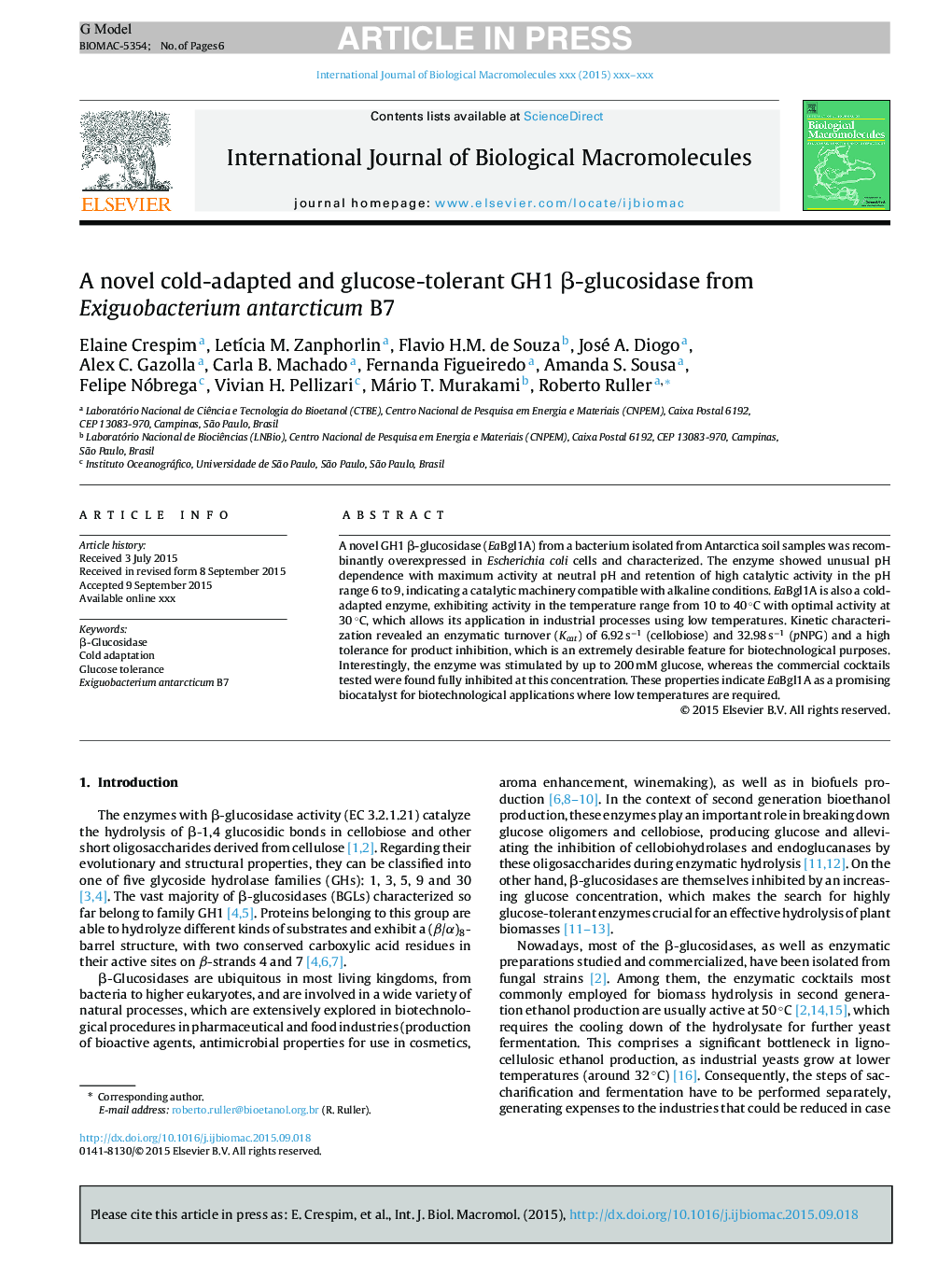| Article ID | Journal | Published Year | Pages | File Type |
|---|---|---|---|---|
| 8330086 | International Journal of Biological Macromolecules | 2016 | 6 Pages |
Abstract
A novel GH1 β-glucosidase (EaBgl1A) from a bacterium isolated from Antarctica soil samples was recombinantly overexpressed in Escherichia coli cells and characterized. The enzyme showed unusual pH dependence with maximum activity at neutral pH and retention of high catalytic activity in the pH range 6 to 9, indicating a catalytic machinery compatible with alkaline conditions. EaBgl1A is also a cold-adapted enzyme, exhibiting activity in the temperature range from 10 to 40 °C with optimal activity at 30 °C, which allows its application in industrial processes using low temperatures. Kinetic characterization revealed an enzymatic turnover (Kcat) of 6.92 sâ1 (cellobiose) and 32.98 sâ1 (pNPG) and a high tolerance for product inhibition, which is an extremely desirable feature for biotechnological purposes. Interestingly, the enzyme was stimulated by up to 200 mM glucose, whereas the commercial cocktails tested were found fully inhibited at this concentration. These properties indicate EaBgl1A as a promising biocatalyst for biotechnological applications where low temperatures are required.
Related Topics
Life Sciences
Biochemistry, Genetics and Molecular Biology
Biochemistry
Authors
Elaine Crespim, LetÃcia M. Zanphorlin, Flavio H.M. de Souza, José A. Diogo, Alex C. Gazolla, Carla B. Machado, Fernanda Figueiredo, Amanda S. Sousa, Felipe Nóbrega, Vivian H. Pellizari, Mário T. Murakami, Roberto Ruller,
